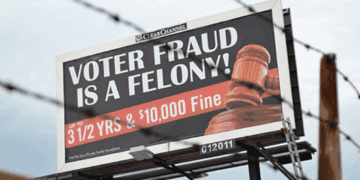By Nancy Thorner –
State Senator Dan McConchie (R-Hawthorn Woods) spoke on Saturday, May 6 at Lake Forest's Gorton Community Center, sponsored by the Women's Republican Club of Lake Forest-Lake Bluff and the Libertyville, Moraine, Shields, West Deerfield, and Vernon GOP Townships.
Senator McConchie discussed pending state legislation, with special emphasis directed to the perilous condition of Illinois and how Illinois can avoid becoming the first junk rated state.
Peggy Siebert serves as the president of the Women's Republican Club of Lake Forest-Lake Bluff. Founded in 1941, the organization is the longest continually operating political organization of its kind in the area.
Senator Dan McConchie introduced by Peggy Siebert
Senator McConchie, as the lone Illinois Republican senator in Lake County, isn't one to mince words about the deplorable financial situation Illinois is facing. As McConchie revealed, Illinois has gone twenty-two months without a budget, a record not matched by any other state. General spending is $38 billion. Given a revenue of $32, Illinois' debt is increasing by $15 million every day the state is without a budget. McConchie further stressed that money is being spent even without a budget. 60% of what Illinois spends is mandated, which puts spending on autopilot. This leaves $24 billion for discretionary spending. With a population of 12.3 million, each person in Illinois would owe $979 to erase the state's debt. Pensions alone, as unfunded liabilities, amount to $15.6 billion.
As McConchie explained: Madigan's proposed House budget bill overspent by $7 billion. It was thought by Senator McConchie that Senate President John Cullerton wasn't going to call up Madigan's budget bill for a vote in the Senate, but he did. Even though only 30 Senators were needed to pass the bill, only 17 senators voted in favor of it. To McConchie, it was a good sign that Cullerton was willing to bring Madigan's budget bill up for a vote and that legislators stood up to vote against Madigan's budget, even Democrats. Cullerton, as president of the Senate and a protegee of Madigan, usually bows to the wishes of Madigan to enact a stranglehold on the way legislation moves through the Senate.
McConchie believes it matters how a budget bill is first presented. The main focus of Democrats is to decide what and how much to tax, when raising taxes should be viewed as perhaps last. A claim made by Democrats is that taxes were raised before and the sky didn't fall, so why not raise taxes again?
Illinoisans see their state as a black hole and are unsure of what the state is doing with all of its money. Medicaid does consumes the biggest chunk of spending, while K-12 education ranks next.
According to Senator McConchie: Illinois has the 2nd highest property tax in the nation and ranks 51st in tax burden when counting Puerto Rico. McConchie was adamant that taxes not be raised first. His first priority is to cut spending.
As to how Senator McConchie views Speaker MIke Madigan, every day Mike Madigan thinks of what he must do — who is he playing chess with today? — to maintain his majorities in the General Assembly. At 75, Madigan is the longest serving Speaker in U.S. history. He has no concern about his legacy. He only wants to maintain power in his own little sandbox.
Bills sponsored by Senator McConchie
The “Taxpayer Bargain” proposal was introduced on April 26 by Senators Kyle McCarter and Dan McConchie. McConchie was pleased to hear that fourteen pieces of their 18-bill package of government reforms and cuts have been assigned to seven Senate committees.
About the bill, the “Taxpayer Bargain” represents the reality of Illinois’ current fiscal crisis. It is called tough medicine for a very sick state. The plan prioritizes spending, recognizing the state’s limited resources. It includes challenging cuts and an enforceable spending cap with no new or higher taxes. The package of legislation was created with bipartisan input and includes some pending legislation. Specific committee hearing dates and times have not yet been announced. Details of the ‘Taxpayer Bargain’ are available on its website.
In March of this year State Senator Dan McConchie likewise sponsored practical transparency legislation that would clearly outline for taxpayers when they receive a property tax break from their units of local government. Senate Bill 1072 requires local property tax bills to clearly indicate when a local taxing body chooses not collect the full amount of property taxes for that year and allows taxpayers to keep a portion of the money. On May 4, 2017, McConchie's legislation, Senate Bill 2072, passed the Senate.
Cullerton is viewed by McConchie as the biggest obstacle in passing an Illinois budget. Cullerton is a typical tax and spend liberal. Presently both the House and Senate only need a simple majority to pass legislation with an immediate effective date. After May 31, in any given calendar year, an “immediate” effective bill requires a super majority to pass. The Senate has 39 members and the House 71. The May 31th deadline was set in the state constitution to force legislative action on the budget before the fiscal year begins on July 1.
McConchie revealed that an old fashioned computer system being used in Illinois and of the $250 computer technology initiative that was launched by Republican Rauner under his "Do it" program. Both political parties see the need for upgrading technology, but not Illinois' state comptroller who has suspended $27 in payments for the $250 million computer technology initiative, because of her doubts that the program will produce in long-term savings for the state.
- Illinois is one of the few states still operating in the technological Stone Age.
- Seventy percent of the state’s systems operate under an outdated technology platform, with the majority of the programmers reaching or past retirement age.
- Some Illinois departments don't even have computers.
In closing, Senator McConchie spoke of Illinois facing perilous times and stressed the importance of talking to our friends and family to let them know just what is happening here in Illinois.
Facts: Questions and Answers
- Teacher don't qualify for Social Security because they opted out of it. Teacher pensions (TRS) represent the largest unfunded pension system in the state. Illinois is not on the hook for Chicago teachers. A block grant is provided of $215 million
- Fire and policemen also receive pensions, mandated because of physical demands of the job and the limiting factor of age on their activities.
- IL state employees are the highest paid of any state in the nation.
- There is no balance between public sector unions and the government. Public sector union wants more money. The Illinois Income tax would have to be raised from 3.7% to 5.76% to reach a balanced budget and would have to be upped to 6% to cover what the unions are requesting.
- The prevailing wage in the public sector is higher than that in the private sector for a comparable job. Clear warnings ensue from Democrats not to mess with unions, and trail lawyers make sure it doesn't happen.
- It is thought that Jesse White, who remains popular, will likely run again at age 83, but is unlikely to fill his 4-year term. Democrats fear Secretary White could lose to a Republican, which might also affect House and Senate races in 2018.
- K-12 education was not cut in Illinois. Lots of schools are struggling. In certain zip codes schools are miserably failing kids who have little chance to succeed. Many end up in crime. Change must be made in the state formula of how money is distributed to school districts. Education must shift away from property taxes as the primary way of funding schools. McConchie recommends a voucher system, opposed by teacher unions, where $8,000 would go to any school a child wants to attend.
- There is a dramatic inequity within school system. Good teacher are poached out of districts who can pay more, while poor school districts suffer.
Brief Remarks from Mark Shaw, head of Republican Party in Lake County
When Senator McConchie was slightly delayed in reaching Gorton Community Center to begin his presentation, Mark Shaw, head of the Republican Party in Lake County, was called upon to offer his thoughts about the recent Lake County municipal and countywide elections. As stressed by Mark Shaw, some of the most important offices, certainly those that most directly affect our lives and our pocketbooks, are decided in municipal election. Elected units of government include park districts, townships, colleges, school boards, etc. Regarding local property taxes, two-thirds of our assessment goes to fund local school district(s).
Shaw indicated that Lake County, once a predictable Republican enclave, is belonging more and more to Democrats, as more and more registered Democrats are moving to Lake County (and other collar counties) and then run for office. Once Liberals obtain a majority on local boards, they start to change government policy. In the past many Democrats ran as Independents, making it impossible to determine the political leanings of a candidate. This is changing. Democrats are now starting to win on their own in Lake County municipal elections. Our responsibility, said Shaw, is to help good people get elected at the local level.







